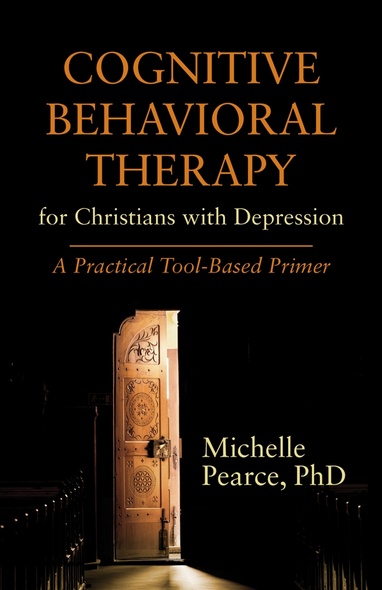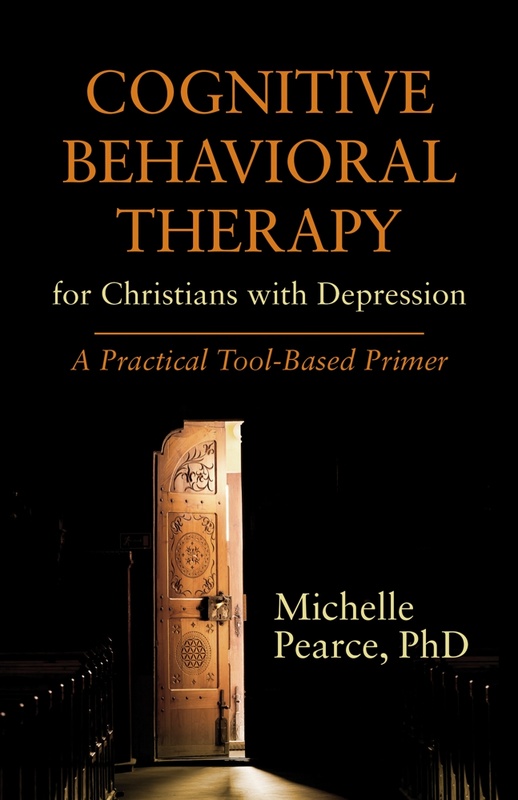Our shopping cart is currently down. To place an order, please contact our distributor, UTP Distribution, directly at utpbooks@utpress.utoronto.ca.
Cognitive Behavioral Therapy for Christians with Depression
A Practical Tool-Based Primer
For anyone in the helping profession, whether as mental health professional or religious leader, this question is bound to arise. Many mental health professionals feel uncomfortable discussing religion. In contrast, many religious leaders feel uncomfortable referring their congregants to professionals who do not know their faith or intent to engage with it.
And yet Michelle Pearce, PhD, assistant professor and clinical psychologist at the Center for Integrative Medicine at the University of Maryland, argues that if religion is essential to a client, religion will be a part of psychotherapy, whether it is discussed or not. Clients cannot check their values at the door more than the professionals who treat them.
To Pearce, the question isn’t really, “does religion belong?” but rather, “how can mental health professionals help their religious clients engage with and use their faith as a healing resource in psychotherapy?”
Cognitive Behavioral Therapy for Christian Clients with Depression is the answer to that question, as the book’s purpose is to educate mental health professionals and pastoral counselors about religion’s role in therapy, as well as equip them to discuss religious issues and use evidence-based, religiously-integrated tools with Christian clients experiencing depression.
In this book, readers will find the following resources in an easy-to-use format:
- An overview of the scientific benefits of integrating clients’ religious beliefs and practices in psychotherapy
- An organizing therapeutic approach for doing Christian CBT
- Seven tools specific to Christian CBT to treat depression
- Suggested dialogue for therapists to introduce concepts and tools
- Skill-building activity worksheets for clients
- Clinical examples of Christian CBT and the seven tools in action
Cognitive Behavioral Therapy for Christian Clients with Depression is a practical guide for mental health professionals and pastoral counselors who want to learn how to use Christian-specific CBT tools to treat depression in their Christian clients.
‘Each chapter provides an easy-to-understand approach on implementing CBT-based tools. . . . It is amazing to have access to a book that not only implements faith-based principles but also uses CBT tools modified for the Christian client’ —Tamara Hill, MS, LPC, PsychCentral
‘For Christian therapists, the question of how psychotherapy and religion can be used in tandem may often arise. There is great debate regarding whether religion belongs in psychotherapy, but the solution may not be as difficult to reach as people think. Dr. Michelle Pearce brings a practical, theological, and well-researched approach to this new guide. CBT and Christianity are not incompatible and, in fact, can work together beneficially and effectively. This is an excellent guide to a Christian CBT approach.’ —American Association of Christian Counselors
‘Dr. Pearce offers a resource for all chaplains who wish to increase their skill development and to move toward evidence-based spiritual care of depressed persons.’ —Roy F. Olson, DMin, BCC, Association of Professional Chaplains
Foreword / ix
Preface / xiii
Acknowledgments / xv
Part One: Overview of Christian Cognitive Behavioral Therapy
Chapter 1: Why Integrate Religion into Therapy? / 3
Chapter 2: Assessment / 19
Chapter 3: Introducing the CCBT Treatment Model to Your Client / 33
Part Two: Seven Practical CCBT Treatment Tools
Chapter 4: Renewing Your Mind: Planting Truth / 45
Chapter 5: Changing Your Mind: Metanoia / 61
Chapter 6: Finding God and the Blessing in Suffering: Redemptive Reframing / 81
Chapter 7: Reaching Out and Connecting / 99
Chapter 8: Letting Go and Letting God: Acceptance and Forgiveness / 115
Chapter 9: Saying Thanks: Gratitude / 135
Chapter 10: Giving Back: Service / 151
Chapter 11: Conclusion and Relapse Prevention / 169
Appendix A: For Clergy / 177
Appendix B: CBT and Christian CBT Resources / 181
Appendix C: Reproducible Resources / 187
Notes / 199
References / 207
About the Author / 219
Index / 221






